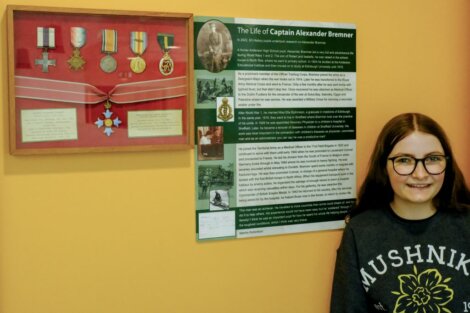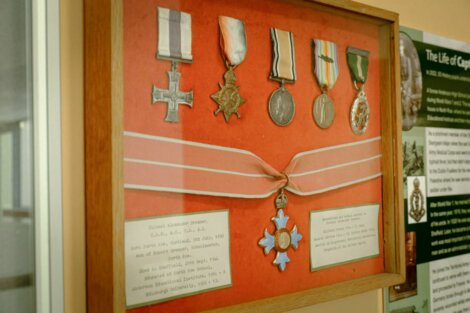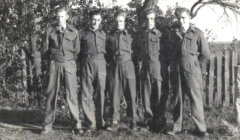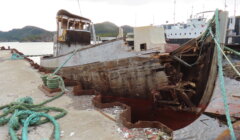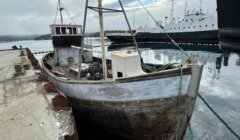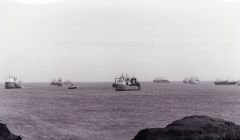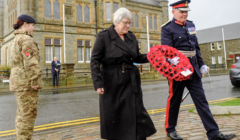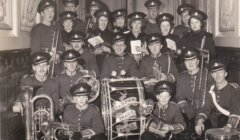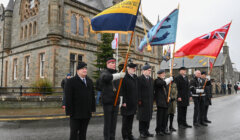History / School displays medals of decorated former pupil
LERWICK’s Anderson High School has commemorated a former pupil who served in both the first and second world wars and who was recognised for gallantry.
The medals of Captain Alexander Bremner CBE MC have now been put in display in the history department of the school, next to the Roll of Honour of former pupils who died in the First World War.
The medals were previously in storage at the former school site at the Knab and S5 pupil Martha Robertson has written up Captain Bremner’s life story for a new display panel next to the framed collection of medals.
Bremner was born in 1890 and was educated at North Roe School. His father Robert Bremner, from Thurso, was the schoolmaster and his mother Isabella (nee Inkster) was of North Roe.
He went on to the Anderson Education Institute in Lerwick and then to Edinburgh University where he qualified as a doctor in 1913, having also been a member of the University’s Officer Training Corps.
During the First World War, Lieutenant, later Captain, Bremner served with the Royal Army Medical Corps and 7th Royal Dublin Fusiliers as Medical Officer, seeing service in what is modern-day Turkey, Greece, Egypt and Palestine.
He was awarded the Military Cross (‘MC’) in June 1916 for “valour in rescuing wounded under fire” and was also later ‘Mentioned in Dispatches’ for gallantry in the field.
After the First World War he married Ella Elphinstone, also an Edinburgh graduate in medicine, and they lived in Sheffield where Bremner took over the practice of his uncle, Dr. Inkster.
Become a member of Shetland News
Bremner had a distinguished career as a doctor and academic, including honorary physician to the children’s hospital in Sheffield in 1926, and also becoming lecturer in children’s diseases at Sheffield University, specialising in the care and treatment of rheumatic children.
He joined the Territorial Army about 1925, and continued to serve with them until the early part of 1940 before serving in France in command of a field ambulance and medical service.
Bremner was involved in heavy fighting and was severely wounded in his legs during the retreat to Dunkirk.
After time in England to recover, and temporary promotion to the rank of colonel, he was in charge of a general hospital.
With this unit he landed among the first British troops in North Africa where the newly erected hospital was soon receiving casualties.
He was again mentioned in dispatches for gallantry in the field, and in August 1943 was made a Commander of British Empire ‘CBE) for ‘services in Tunisia’.
Bremner returned to Sheffield in October 1943 but died suddenly the following year, aged 54.
Anderson High School headteacher Robin Calder said: “Alexander Bremner CBE MC had a remarkable career as a physician and soldier during both world wars, from modest beginnings in the schoolhouse in North Roe.
“We’re very pleased to be able to display his medals in the school, connecting one of our most notable former pupils with those in the school today and in the years to come.”
Shetland Islands Council said viewings of the medals can be made by arrangement with Anderson High School.
Become a member of Shetland News
Shetland News is asking its many readers to consider paying for membership to get additional features and services: -
- Remove non-local ads;
- Bookmark posts to read later;
- Exclusive curated weekly newsletter;
- Hide membership messages;
- Comments open for discussion.
If you appreciate what we do and feel strongly about impartial local journalism, then please become a member of Shetland News by either making a single payment, or setting up a monthly, quarterly or yearly subscription.






